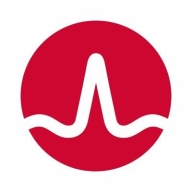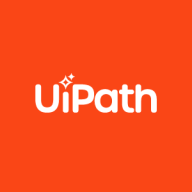


Automic Automation and UiPath Orchestrator are leading competitors in the automation software market, each offering distinctive features and benefits. Automic Automation appears to have an advantage in integration and versatility across platforms, while UiPath Orchestrator is known for its user-friendly interface and efficient management capabilities.
Features: Automic Automation integrates seamlessly across various platforms and applications like SAP and Oracle, offering centralized management and supporting multiple scripting languages. UiPath Orchestrator excels in its user-friendly configuration, featuring centralized logging and visualization, along with efficient scheduling capabilities for streamlined process management.
Room for Improvement: Automic Automation could enhance its administration automation and stability while simplifying its interface and improving connectivity with other tools. UiPath Orchestrator may benefit from improving automation for exceptional cases, restructuring its pricing model, and advancing AI capabilities for a more comprehensive user experience.
Ease of Deployment and Customer Service: Automic Automation supports on-premises, hybrid, and private cloud environments and is backed by substantial technical support, though response times can be slow. UiPath Orchestrator offers robust public cloud deployment options with effective support, but its licensing and customer service have faced scrutiny concerning pricing and support delays.
Pricing and ROI: Automic Automation's tiered pricing may be seen as high but is often justified by its capabilities, leading to significant productivity gains. UiPath Orchestrator is viewed as competitively priced for larger enterprises, though concerns over high costs for additional features exist, yet the ROI is enhanced by operational efficiencies.
The design of JAMS makes it very easy to copy jobs and make minimal changes while ensuring functionality.
I would say we have seen a 30% return on investment because we had multiple tools in place previously, and now we have stopped using all those tools.
Automic Automation has helped reduce workload failure rates by fifty percent.
The impact of UiPath Orchestrator's analytics on the decision-making process is important because it shortens the decision-making time, which helps customers.
Their response is prompt, exemplifying how support should be.
They are very quick to respond depending on the issue's severity.
We contacted JAMS vendor, who guided us through the necessary steps, and after following their guidance, everything was resolved.
They react quickly when it is urgent.
They are highly knowledgeable in their product area and very easy to work with.
If you put the tickets in for which you need help right away, they get back to you right away.
Their support teams are not sufficiently qualified to support us in our needs.
It's on the better side, but still has room for improvement in the speed of response.
I can give customer service an eight out of ten, though sometimes I find difficulties and have trouble finding support.
We might be underutilizing it, but as more jobs require processing, additional servers would be necessary.
JAMS's scalability is noteworthy; we run 6,000 jobs per day without facing any problems.
For scalability, I would rate it as seven because when we have a huge volume, sometimes the tool is not so responsive.
We have small clients running a thousand tasks per day and big enterprises running one million or two million tasks per day.
The solution effectively supports our existing user base and is equipped to scale further.
It does not perform real-time scalability in our environment, but because of the way we have built it, it can scale well past any thresholds with no issues.
The solution's flexibility in integration and scheduling across different environments suggests good scalability.
We experience periods of major incidents annually due to capacity constraints, which result in job failures.
Being on the new version, there's been zero downtime.
The stability of the solution is excellent.
In a well-tuned environment, it runs very smoothly.
So far, I have not encountered any issues related to instability such as lagging, crashing, or downtime.
The solution is stable and integrated well with other systems.
We usually install UiPath on-premises, and then we proceed with web application automations, which has been easy.
Another area for improvement would be the addition of source control for jobs internally, as this feature would solve several problems for me.
A major improvement would be the integration of AI to help us accomplish various tasks.
If around 5,000 or more jobs run at a time, JAMS slows down, and we have to wait around five to 10 minutes or restart JAMS scheduler services.
It does not work as well for activities that require real-time input/output, but it works very well for batch, ETL, or similar cases.
Pricing is a major issue for some clients due to changes in Broadcom's pricing model, causing some to seek alternative solutions.
A feature that provides a dependency chart or tree diagram would be very helpful.
I would prefer if the tool was more intuitive and it is important to maintain simplicity instead of combining multiple functionalities, potentially through different licensing models to restrict features.
UiPath Orchestrator setup is easy, but the settings could be made easier for other people to understand.
I am interested in seeing more features like document understanding and AI integration.
The price is fair considering the functionality and importance of the tool, although the increase did unsettle our management.
My thoughts on the pricing of JAMS are that I won't say it is cheap, but it is cost-efficient, and that should be acceptable.
Broadcom decided to change the way of licensing by moving to the number of jobs runs and then they say that clients have to pay three million because they run one million jobs per day.
Due to the increased pricing, some of them are thinking of reducing tasks in Automic to have fewer executions.
The pricing has been increasing significantly over the years, raising operational costs instead of reducing them.
The pricing of UiPath Orchestrator is a bit high.
Regarding licensing costs and setup costs, the pricing is on the higher side compared to other RPA solutions that are entering the market, which are much cheaper, and sometimes we cannot retain customers because of this.
It would be beneficial for UiPath to further refine pricing, setup costs, and licensing by making their tool more intuitive and simplifying complex functionalities.
JAMS has positively impacted my organization by completely removing the headache of scheduling jobs, not just for the organization but for all internal operations teams need.
JAMS helps centralize the management of jobs on all of my platforms and applications, which has helped my organization significantly.
This efficient feature has been invaluable, enabling us to streamline our workflow and enhance productivity.
A standout feature is the comprehensive versioning, allowing easy rollback to previous states.
Designing workflows is made easier by the graphical user interface, simplifying complex tasks.
It supports high availability by operating multiple servers concurrently, which means users do not experience outages or the need to log in again, even if some servers are updated.
The centralized nature of UiPath Orchestrator provides a seamless experience for managing automation processes.
Compared to UiPath, there are many packages available to make automation easier, which is why I find UiPath to be the best.
We use UiPath Orchestrator to connect with different applications, extract and analyze data by specific criteria, and send emails.
| Product | Market Share (%) |
|---|---|
| Automic Automation | 6.3% |
| JAMS | 2.8% |
| UiPath Orchestrator | 1.2% |
| Other | 89.7% |


| Company Size | Count |
|---|---|
| Small Business | 11 |
| Midsize Enterprise | 8 |
| Large Enterprise | 19 |
| Company Size | Count |
|---|---|
| Small Business | 19 |
| Midsize Enterprise | 14 |
| Large Enterprise | 67 |
| Company Size | Count |
|---|---|
| Small Business | 8 |
| Midsize Enterprise | 8 |
| Large Enterprise | 20 |
JAMS is an automation and job scheduling solution designed for workflow optimization, catering to businesses large and small with flexible licensing and integration options.
Offering both Core and Advanced packages, JAMS supports a range of environments from small teams to large-scale operations. Its standout features include integration with platforms like PowerShell, SQL, and SAP, coupled with capabilities such as dependency management and natural language scheduling. JAMS simplifies job management, centralizes workflows, and boosts productivity with its robust automation features. Customizable workflows and insightful logging make it adaptable for diverse needs, supported by responsive customer service ensuring seamless operations.
What are JAMS's key features?In industries, JAMS is employed for automating workflows and managing batch jobs. Organizations utilize it for SSIS, SQL Server tasks, file transfers, and integrating with vendor systems, achieving efficient file automation and data management. Scheduler enables precise execution of thousands of tasks daily, enhancing operational efficiency.
Automic Automation offers a web-based GUI for high scalability and flexibility, integrating with platforms like SAP and Oracle. It promotes efficient process automation and supports multiple OS environments, benefiting diverse industries with its robust predictive capabilities.
Automic Automation facilitates process automation and workload management, providing valuable integration with applications like SAP and Oracle. It supports a wide range of operating systems and environments, enabling seamless workflow automation. It features a web-based interface accessible across devices, ensuring scalability and flexibility for complex job automation. Users find its predictive capabilities and platform support instrumental in enhancing operations, although improvements are noted in reporting, cloud integration, and documentation. Licensing and pricing structures also present room for optimization, along with workflow dependency management and smoother upgrade paths.
What are the key features of Automic Automation?
What benefits and ROI should users expect from Automic Automation?
Automic Automation sees implementation in industries like banking, finance, and telecommunications, where it automates ERP systems, schedules batch jobs, integrates workloads, and manages file transfers. By supporting SAP, Oracle, and ETL tasks, it aids efficiency and workload automation across varied environments including cloud and mainframe systems.
UiPath Orchestrator offers a centralized platform for managing robotic process automation tasks, featuring advanced scheduling, integration capabilities, and robust monitoring to enhance workflow efficiency across environments.
UiPath Orchestrator provides a comprehensive suite of tools for automating workflows, centralizing data management, and ensuring security compliance. Known for its ease of use, it helps businesses schedule robots, handle reports, and monitor logs centrally. It facilitates task deployment across diverse environments, simplifies document understanding, process automation, and provides insights into bot activities. While installation and complexity are areas for improvement, Orchestrator remains integral in sectors like finance, telecom, and healthcare.
What features does UiPath Orchestrator provide?Organizations leverage UiPath Orchestrator for automating workflows such as website processes and supply chain management. In industries like finance and healthcare, it is used for provisioning and data entry. It provides a framework to configure machines, create templates, and manage resources, driving efficiency and innovation.
We monitor all Workload Automation reviews to prevent fraudulent reviews and keep review quality high. We do not post reviews by company employees or direct competitors. We validate each review for authenticity via cross-reference with LinkedIn, and personal follow-up with the reviewer when necessary.